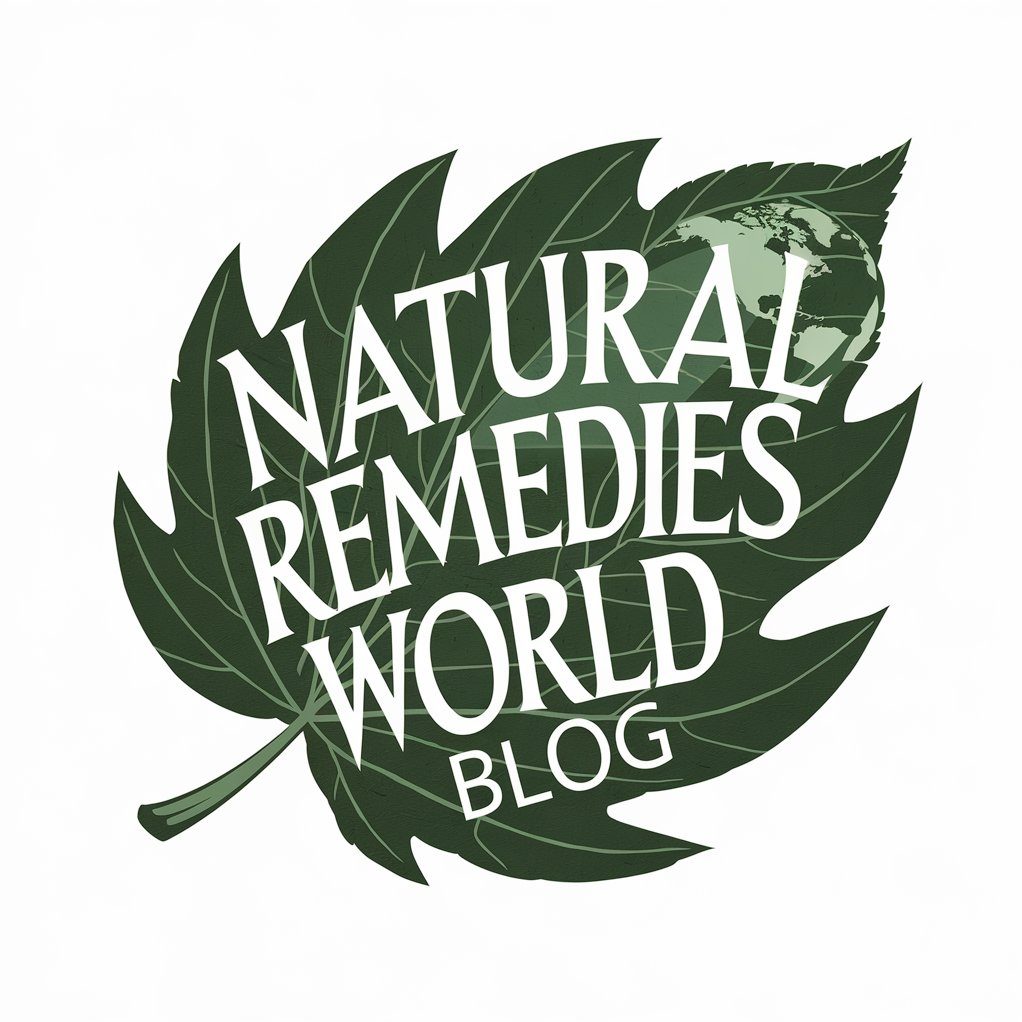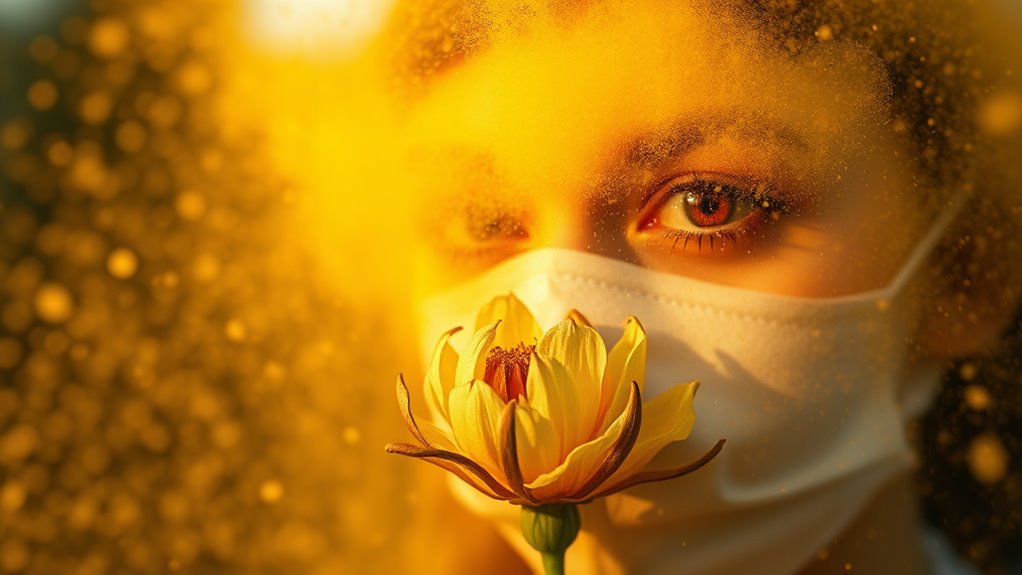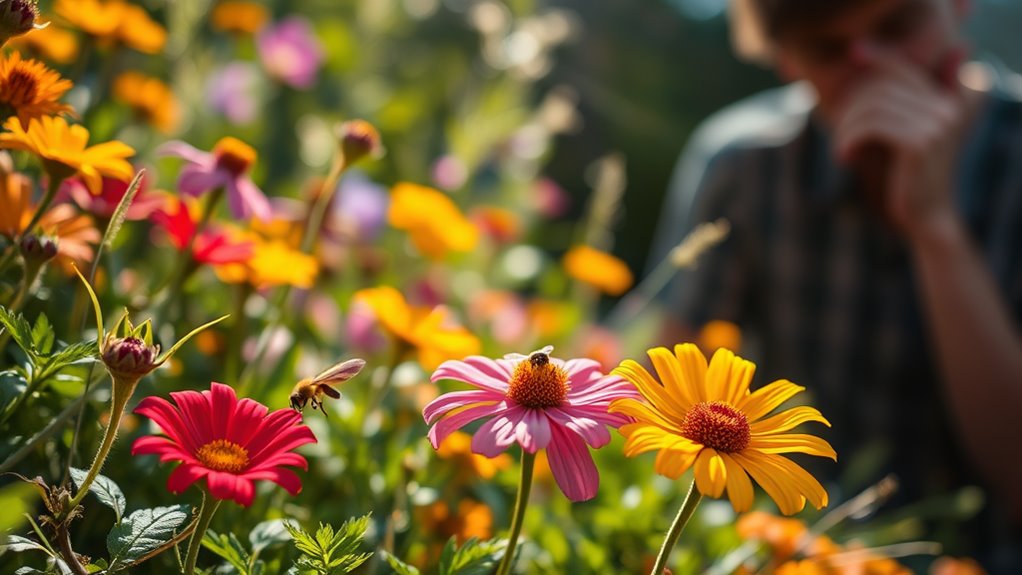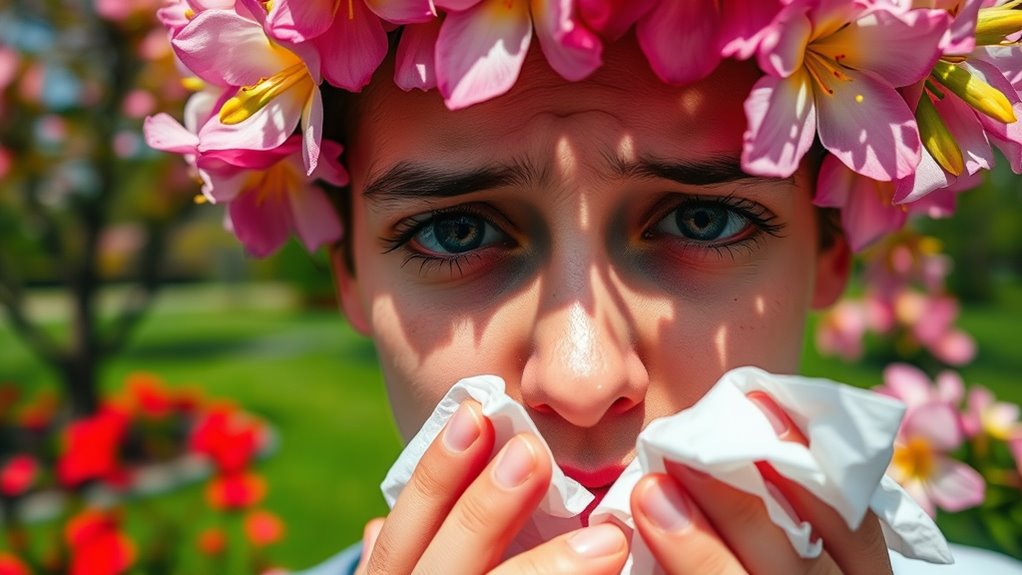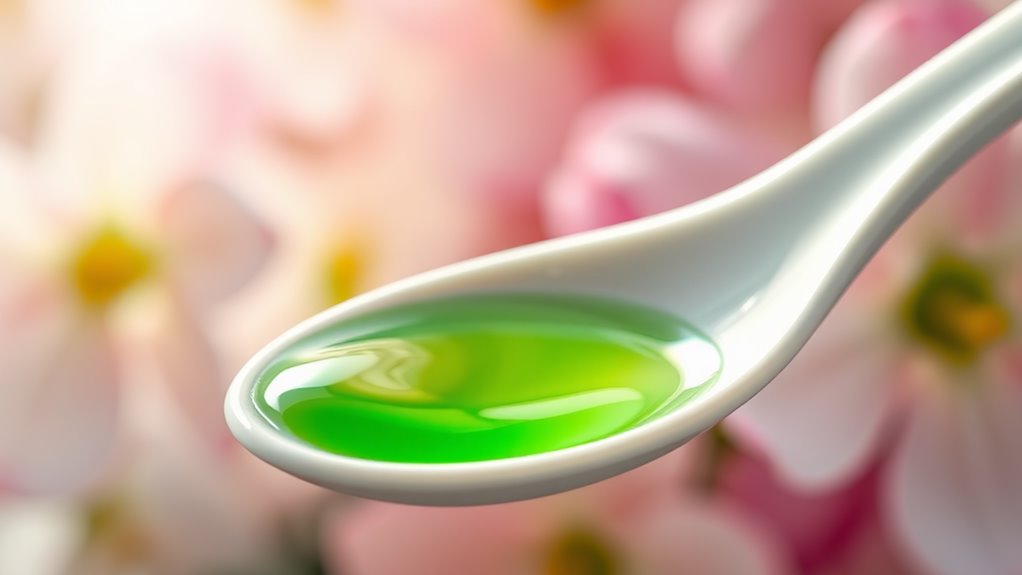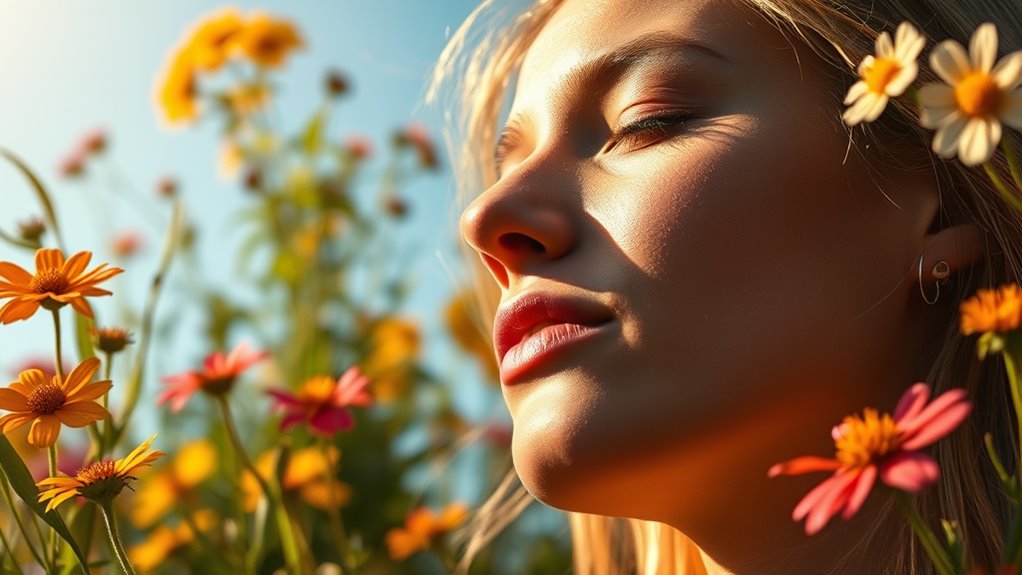Pollen Season Nightmare. This Allergy Hack Will Save You!
Pollen season can be a nightmare for allergy sufferers, but with a few simple hacks, you can make it bearable. Keep windows closed on high pollen days and consider using an air purifier to improve indoor air quality. A saline nasal rinse can clear irritants, and local honey might help your body adapt to local pollen. Remember to shower after being outside to wash away allergens. Discover more effective strategies to reclaim your comfort during this challenging season!
Understanding Pollen and Its Effects on Allergies
As spring arrives and flowers bloom, pollen becomes a significant trigger for allergy sufferers. You might notice sneezing, itchy eyes, or a stuffy nose when pollen counts rise. It’s not just you—many people share this struggle, and understanding pollen can help you feel less alone.
Pollen comes from trees, grasses, and weeds, each contributing to seasonal allergies in different ways. When you’re outside, these tiny particles can invade your system, triggering an immune response that leads to discomfort.
Knowing when pollen levels peak can empower you to take action, like planning your outdoor activities accordingly. You’re not just battling allergies; you’re joining a community of others who understand and share your experience. Together, you can navigate this challenging season.
Identifying Common Allergens in Your Area
When you’re trying to manage your allergies, knowing the common allergens in your area can make a big difference. Identifying what triggers your symptoms can help you avoid them and feel more comfortable outdoors. Here’s a quick overview of common allergens you might encounter:
| Allergen | Season | Symptoms |
|---|---|---|
| Pollen | Spring/Summer | Sneezing, itchiness |
| Mold Spores | Fall/Winter | Coughing, congestion |
| Dust Mites | Year-Round | Itchy eyes, fatigue |
Natural Remedies for Allergy Relief
Identifying the allergens that trigger your symptoms is just the first step in managing your allergies effectively.
Once you know what’s causing your discomfort, you can explore natural remedies that may bring relief. Consider using a saline nasal rinse to clear irritants from your nasal passages. Local honey is also a popular choice—some believe it helps your body adapt to local pollen.
Quercetin, found in foods like onions and apples, acts as a natural antihistamine. Don’t forget about essential oils; lavender and peppermint can soothe your symptoms.
Lastly, staying hydrated helps thin mucus, making it easier to breathe. Remember, sharing these remedies with friends can create a sense of community as you navigate allergy season together!
Preventive Measures to Reduce Allergen Exposure
To effectively manage your allergy symptoms, implementing preventive measures can significantly reduce your exposure to allergens.
Start by keeping windows closed during high pollen days and use air conditioning to maintain a comfortable environment.
When you venture outdoors, wear sunglasses and a wide-brimmed hat to shield your eyes and face.
Be sure to shower and change clothes after outdoor activities to remove pollen that clings to you.
Regularly washing your bedding and vacuuming with a HEPA filter can also help.
Consider planning your outdoor activities for later in the day when pollen counts tend to be lower.
The Importance of Indoor Air Quality
Indoor air quality is crucial for your overall health, especially during pollen season. When you’re indoors, you want to feel safe and comfortable, free from allergens that can sneak in.
Poor air quality can trigger your allergies and make you feel miserable, impacting your daily life and your time with loved ones. By ensuring good ventilation and using air purifiers, you can create a sanctuary that keeps allergens at bay.
Regularly changing filters and cleaning your space helps too. Remember, you’re not alone in this; many people are seeking ways to breathe easier.
Prioritize your indoor air quality, and you’ll find a supportive community that shares tips and experiences, making this challenging season a little bit better for everyone.
Lifestyle Changes to Manage Allergy Symptoms
Maintaining good indoor air quality is just one piece of the puzzle when it comes to managing allergy symptoms.
You can make lifestyle changes that contribute significantly to your comfort during pollen season. Here are some simple yet effective strategies you can adopt:
-
Limit outdoor activities during peak pollen times, usually in the morning.
-
Shower and change clothes after spending time outside to remove pollen.
-
Use air purifiers**** with HEPA filters to trap allergens indoors.
-
Keep windows closed to prevent pollen from entering your home.
When to Seek Professional Help for Allergies
While many allergy symptoms can be managed with lifestyle changes and over-the-counter remedies, there are times when seeking professional help becomes essential.
If you find your symptoms persisting despite your best efforts, it’s crucial to consult an allergist. They can pinpoint the exact triggers and recommend personalized treatment plans.
If your allergies lead to severe reactions, like difficulty breathing or swelling, don’t hesitate to seek immediate care.
Also, if over-the-counter meds cause unwanted side effects or if you’re relying on them too frequently, that’s a sign to reach out for professional advice.
Frequently Asked Questions
Can Allergies Cause Other Health Issues Beyond Respiratory Symptoms?
Yes, allergies can trigger various health issues beyond respiratory symptoms. You might experience skin reactions, digestive problems, or even fatigue. It’s essential to address these symptoms to improve your overall well-being and quality of life.
How Long Does Pollen Typically Stay in the Air?
Pollen usually stays in the air for several hours to a few days, depending on weather conditions. When it’s windy, it can spread quickly, so you might want to check local forecasts for pollen levels.
Are Certain Foods Linked to Pollen Allergies?
Certain foods can trigger pollen allergies, especially if you’re sensitive to specific plants. Eating raw fruits and vegetables, like apples or carrots, might cause oral allergy syndrome, so listen to your body and choose wisely.
Can Pets Carry Pollen Indoors?
Yes, pets can carry pollen indoors on their fur or paws. When you let them in after outdoor play, you might inadvertently invite allergens into your home, making it tougher for you to breathe comfortably.
What Is the Best Time of Day for Outdoor Activities During Pollen Season?
For outdoor activities during pollen season, aim for mid-morning or late afternoon. Pollen levels tend to be lower then, so you can enjoy the fresh air without the sneezing and congestion that often follows.
